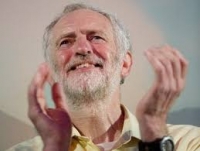
Civil war: Britain’s ruling Conservative Party is in disarray after the resignation of Iain Duncan Smith as work and pensions secretary. Duncan Smith’s move — to protest cuts to disability benefits in last week’s budget — is a direct attack on the Chancellor of the Exchequer George Osborne.
The departure of Duncan Smith, an avowed Euroskeptic, deepens the internal party rift over the Brexit referendum. Senior Tory politicians are getting more and more concerned that the chasm opened by both Brexit and, now, the budget, will inflict lasting damage to the party, even after the June 23 vote.
How to get out of this mess — a senior Tory speaks: Last week, before the Duncan Smith drama, I had the chance to speak to a Tory grandee who laid out the most likely scenario for Brexit and beyond. The conclusion will not be easy to digest in Brussels, and Paris and Berlin: Even if Britain stays in the EU, it will end up being more Euroskeptic than in the past.
Brussels could become Britain’s punchbag: Here’s the senior Tory politician’s rationale: If David Cameron wins the referendum, he will have to immediately start a process of “healing” the wounds suffered by his party in the past few months. That means appealing to the Euroskeptic wing of the party, led by Boris Johnson and Michael Gove. Failing to do that could turn the Johnson faction into the de facto opposition to the government, more powerful than Labour under its left-wing leader Jeremy Corbyn.
But to bring the Euroskeptics back into the tent, the Tory politician reasoned, Cameron will have to take a stance on European policies that is even tougher than Britain’s current semi-detached position. The senior Tory expects Cameron to use every aspect of the deal secured at last month’s EU summit to resist further integration, protect the City of London and allay the public’s fears over immigration (for more on that, see below).
M.E.’s take on the foreign policy implications: Despite what German Finance Minister Wolfgang Schäuble and others have been saying, a victorious Cameron would be less, not more, engaged with Europe. Financial services dossiers would be particularly impacted, and the right of the City to be regulated domestically would come even more to the forefront of the U.K. policy agenda. Discussions with more “integrationist” members such as Germany and France will become more and more tense.
M.E.’s take on the domestic policy implications: Osborne’s leadership hopes are dwindling by the minute. Some Tories are starting to speak about the possibility of Cameron reneging on his pledge to step down before the 2020 general election. A third term for Cameron “could be a way for David to protect George and avoid someone else [like Johnson] taking over,” the senior Tory said.
1 comment
Leave a comment
Make sure you enter all the required information, indicated by an asterisk (*). HTML code is not allowed.
Join
FREE
Here










